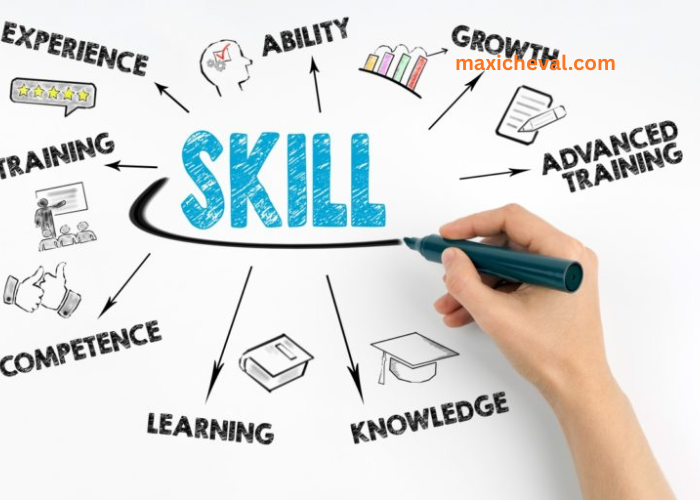Democracy, often hailed as the epitome of political systems, stands at a crossroads in the 21st century. It has been a beacon of hope and a symbol of freedom for many, but it faces a myriad of challenges that threaten its very foundation. In this article, we will delve into the complex world of democracy, exploring its historical context, the challenges it faces today, and the opportunities it presents for a better future.
The Historical Context of Democracy
To understand the challenges and opportunities democracy faces today, it’s essential to first appreciate its historical context. Democracy, in its various forms, has a rich history dating back to ancient Greece. The word itself is derived from two Greek words: “demos,” meaning the people, and “kratos,” meaning power or rule. Athenian democracy, which emerged in the 5th century BC, is often considered the prototype of direct democracy. In this system, eligible citizens gathered to make decisions collectively, without the intermediation of elected representatives.
Over the centuries, democracy evolved and took on different forms. The Roman Republic introduced elements of representative democracy, where citizens elected officials to make decisions on their behalf. However, it was during the Enlightenment in the 17th and 18th centuries that democratic ideals truly gained momentum. Thinkers like John Locke and Jean-Jacques Rousseau laid the philosophical foundations for modern democracy, emphasizing concepts of individual rights, social contracts, and the sovereignty of the people.
The American Revolution of 1776 and the French Revolution of 1789 were pivotal moments in the spread of democratic ideals. The United States established a federal republic with a Constitution that enshrined democratic principles, while France’s revolution gave birth to the famous motto: “Liberty, Equality, Fraternity.” These events inspired democratic movements worldwide.
Throughout the 19th and 20th centuries, democracy continued to grow, with countries adopting various forms of democratic governance. Today, democracy is considered the predominant political system globally, with numerous nations embracing it in different ways. However, democracy’s historical journey is marked by both triumphs and tribulations, and its current status is not without challenges.
The Challenges Facing Democracy
Erosion of Democratic Norms
One of the most pressing challenges democracy faces today is the erosion of democratic norms and values. In some established democracies, leaders have pushed the boundaries of their power, undermined the rule of law, and attacked institutions designed to provide checks and balances. These actions have raised concerns about the durability of democratic systems.
Polarization and Populism
Political polarization and the rise of populism have exacerbated divisions within democracies. The “us versus them” mentality has led to gridlock in legislatures, making it difficult to find common ground and pass meaningful legislation. Populist leaders often capitalize on the frustrations of marginalized groups, promoting a simplistic and often authoritarian agenda that can undermine democratic institutions.
Threats to Press Freedom
A free and independent press is a cornerstone of democracy, providing essential checks on government power and informing the public. However, in many democracies, press freedom is under threat. Journalists face harassment, violence, and censorship, and media outlets are increasingly controlled by a few powerful entities, limiting the diversity of voices and perspectives.
Disinformation and Fake News
The digital age has given rise to the rapid spread of disinformation and fake news, which can distort public discourse and manipulate public opinion. Social media platforms, while offering new avenues for free expression, have also become breeding grounds for the dissemination of false information, often with malicious intent.
Voter Suppression and Manipulation
Voter suppression and manipulation are serious threats to the integrity of elections in democracies. These tactics can include gerrymandering, voter ID laws, and foreign interference. When citizens believe their voices do not count or that elections are rigged, it undermines trust in the democratic process.
Economic Inequality
Economic inequality can pose a significant challenge to democracy. When a small segment of the population holds a disproportionate share of wealth and power, it can lead to policies that primarily benefit the wealthy, leaving marginalized communities behind. This inequality can erode faith in democratic institutions and processes.
Globalization and Transnational Challenges
Globalization has brought both opportunities and challenges to democracy. While it has facilitated the exchange of ideas and the spread of democratic values, it has also created transnational issues that are difficult for individual nations to address effectively, such as climate change, cybersecurity threats, and economic crises.
Opportunities for Strengthening Democracy
Despite the challenges, democracy has the potential to evolve and thrive in the 21st century. There are several opportunities for strengthening democratic systems and ensuring their resilience.
Civic Education
Civic education is essential for building an informed and engaged citizenry. Governments and civil society organizations can invest in educational programs that teach critical thinking, media literacy, and an understanding of democratic principles. Informed citizens are more likely to participate in the democratic process and hold their leaders accountable.
Electoral Reforms
Electoral reforms can help address issues like voter suppression and gerrymandering. Implementing fair and transparent electoral systems can ensure that all citizens have equal access to the voting booth and that their voices are accurately represented in government.
Technology and Innovation
Technology can be harnessed to enhance democracy rather than undermine it. Digital platforms can promote transparency, enable greater citizen engagement, and facilitate the dissemination of accurate information. Additionally, advancements in secure online voting systems can make elections more accessible and convenient while maintaining their integrity.
Strengthening Civil Society
Civil society organizations play a vital role in holding governments accountable and advocating for the rights and interests of citizens. Governments should create an enabling environment for these organizations to operate freely, and citizens should actively support their work.
International Cooperation
Transnational challenges require international cooperation. Democracies can work together to address issues like climate change, cybersecurity, and global health crises. Collaborative efforts can strengthen the influence of democratic nations on the world stage.
Inclusive Policies
To address economic inequality, governments can implement policies that promote inclusivity and reduce disparities. This includes measures like progressive taxation, social safety nets, and access to quality education and healthcare for all citizens.
Media Literacy and Fact-Checking
Efforts to combat disinformation and fake news should focus on media literacy and fact-checking initiatives. Empowering individuals to critically assess information sources can help them make informed decisions and resist the spread of false information.
Reinforcing Democratic Norms
Leaders and institutions must actively reinforce democratic norms and values. Leaders should lead by example, upholding the rule of law and respecting the independence of institutions. International organizations can play a role in monitoring and promoting democratic standards.
Conclusion
Democracy’s journey through history has been marked by both progress and setbacks. While it faces significant challenges in the 21st century, it also presents opportunities for renewal and strengthening. By investing in civic education, electoral reforms, technology, civil society, and international cooperation, democracies can overcome many of the hurdles they currently face.
Democracy is a dynamic system that thrives when citizens are engaged, institutions are strong, and leaders are accountable. It is incumbent upon all stakeholders, from government leaders to civil society organizations to individual citizens, to work together to navigate democracy’s dilemmas and ensure a brighter democratic future for all. Ultimately, the success of democracy lies in the hands of those who believe in its enduring value and are




